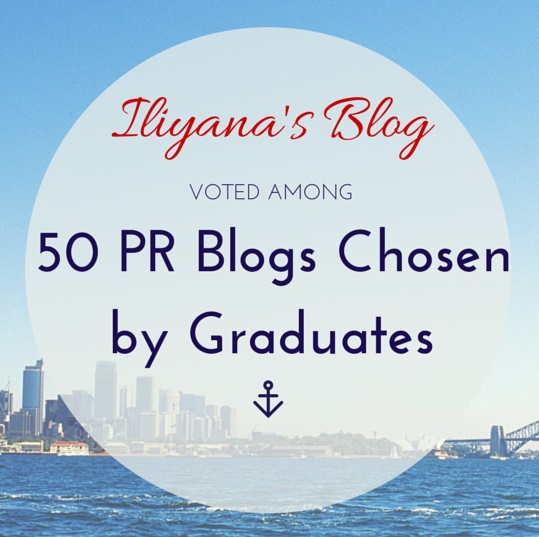Did you know that countless fruits  and vegetables are needlessly thrown away every day by mass producers, yet the only thing wrong with them is that because they are disfigured, ugly or misshapen they are deemed unworthy and out of the norm? In reality, they are just as delicious and just as good for you as the "pretty", perfectly shaped ones. This is why French supermarket company Intermarché decided to do something about it. They launched a film, print, poster and radio campaign called the Inglorious Fruits&Vegetables, promoting the beauty of not-so-perfect fruits and veggies and so fighting food waste.
and vegetables are needlessly thrown away every day by mass producers, yet the only thing wrong with them is that because they are disfigured, ugly or misshapen they are deemed unworthy and out of the norm? In reality, they are just as delicious and just as good for you as the "pretty", perfectly shaped ones. This is why French supermarket company Intermarché decided to do something about it. They launched a film, print, poster and radio campaign called the Inglorious Fruits&Vegetables, promoting the beauty of not-so-perfect fruits and veggies and so fighting food waste.
French consumers can not only enjoy healthy, fresh foods, but also save money as the previously deemed unfit for consumption fruits and veggies are offered at 30% less. The French supermarket chain buys the foods from farmers who would usually throw them away. This way the company also supports local production.
The overall aim of the campaign was to send an important message: it's not what fruits and veggies look like, but how they taste that matters – disfigured, hideous or ugly fruits and veggies are just as delicious and should not be tossed simply because of their "looks".
Glorifying the unusual, with currently over four million views on YouTube the campaign has immediately gone viral and the project has been a massive success. According to the Daily Mail, the overall traffic to Intermarché's stores has increased by 24 percent since the programme’s launch.
The Huffington Post calls the campaign "a work of delicious genius" and I absolutely agree.
The whole idea makes great business sense. It aims to bring an end to a serious global problem – food waste –by re-educating consumer prejudices against food looks. In the U.S. for example, the USDA has estimated that Americans throw out over 133 billion pounds of food every year - that’s almost a third of the available food supply!
The campaign is not just content-rich; it's powerful because it challenges your intellectual capacity, it makes you think and rethink your behaviour and the choices you make and why you make them.
It's also a good example of how effective storytelling can be – it manages to question your actions by telling the story of the Grotesque Apple, the Ridiculous Potato, the Hideous Orange, the Failed Lemon, the Disfigured Eggplant, the Ugly Carrot and the Unfortunate Clementine. It celebrates their beauty by encouraging people to look beyond the unattractive outside and focus on the healthy edible inside.
With the super creative posters, the campaign also makes use of visual storytelling. According the photographer, Patrice de Villiers, the most important part was to give real character to the foods: "The most vital element was ensuring the "strange but lovable" theme shone through I spent time observing our uglies trying to find the precise angle which showed both their "ugliness" and their loveliness, finding their unique character." The messages in the posters support this, for example "The Ridiculous Potato--Elected Miss Mash Potato 2014" and "The Hideous Orange--Makes Beautiful Juice."
Furthermore, Intermarché's Inglorious Fruits&Vegetables is a great example of a sustainable value-brings-value approach to business . The supermarket encourages healthy eating so that you can get your "five a day" and do so at a more competitive price so that you seek out even more. This is the added value for consumers, who on the other hand see the major benefits and in turn buy more – bringing not only monetary value for the supermarket, but also value in the form of consumer loyalty that serves the Intermarché's brand reputation.
Unfortunately however, our current economy is largely based on the "take-make-waste" premise, not this circular value-to-value paradigm.
What drives this vicious linear production process is careless consumption. We buy things, use them and then simply ditch them.
But, and this is a big but, change must come from individuals, not just from corporates.
It is us, ordinary people, who need to change our everyday consumption and post-consumption consumer behaviour and habits. Companies can only stimulate that by offering goods that are produced to be reused, recycled or repurposed, but at the end it is an individual choice to actually reuse, recycle and repurpose.
Just as it is an individual choice to buy "inglorious" fruits and vegetables instead of the "pretty" ones.
On a personal level, you can, of course, make sure that you recycle waste, buy bio and green products, reduce energy and water use by e.g. choosing to wash at 30 degrees, or avoid air pollution by cycling or walking to work instead of driving. These are all personal choices that form individual sustainable decision-making and environmentally-friendly actions.
And if you're looking for an eco-action that is more fun, how about making Eco Art your hobby?
In its essence, Eco Art is art in harmony with nature – it's about reusing or repurposing, aka DIY upcycling or recycling, materials and items we use in our daily lives to create beautiful souvenirs, gifts and crafts. This way you can get your creative juices flowing and make better use of environmentally harmful materials instead of just throwing them away. It's also a wonderful way to relax, refuel and quiet your mind of work thoughts.
My friend Julie Urlaub from Taiga Company has created an inspirational board on Pinterest full of ideas how we can recycle, reuse, repurpose and so reduce waste and live green. If you're up for some eco-friendly crafts and ideas, I suggest you have a look at it :)
Wrapping up
It is not just companies, but also individuals who need to adopt and create eco-friendly action and behaviour that is sustainable with the limited resources of our environment.
The business rationale for producing and creating awareness for the benefits of socially responsible goods and services is ensuring that your company will be around in the next ten years.
The individual rationale for making sustainable and environmentally-friendly choices is giving our children the opportunity to have a prosperous future.
Image collated from Up/Recycling board on Pinterest









